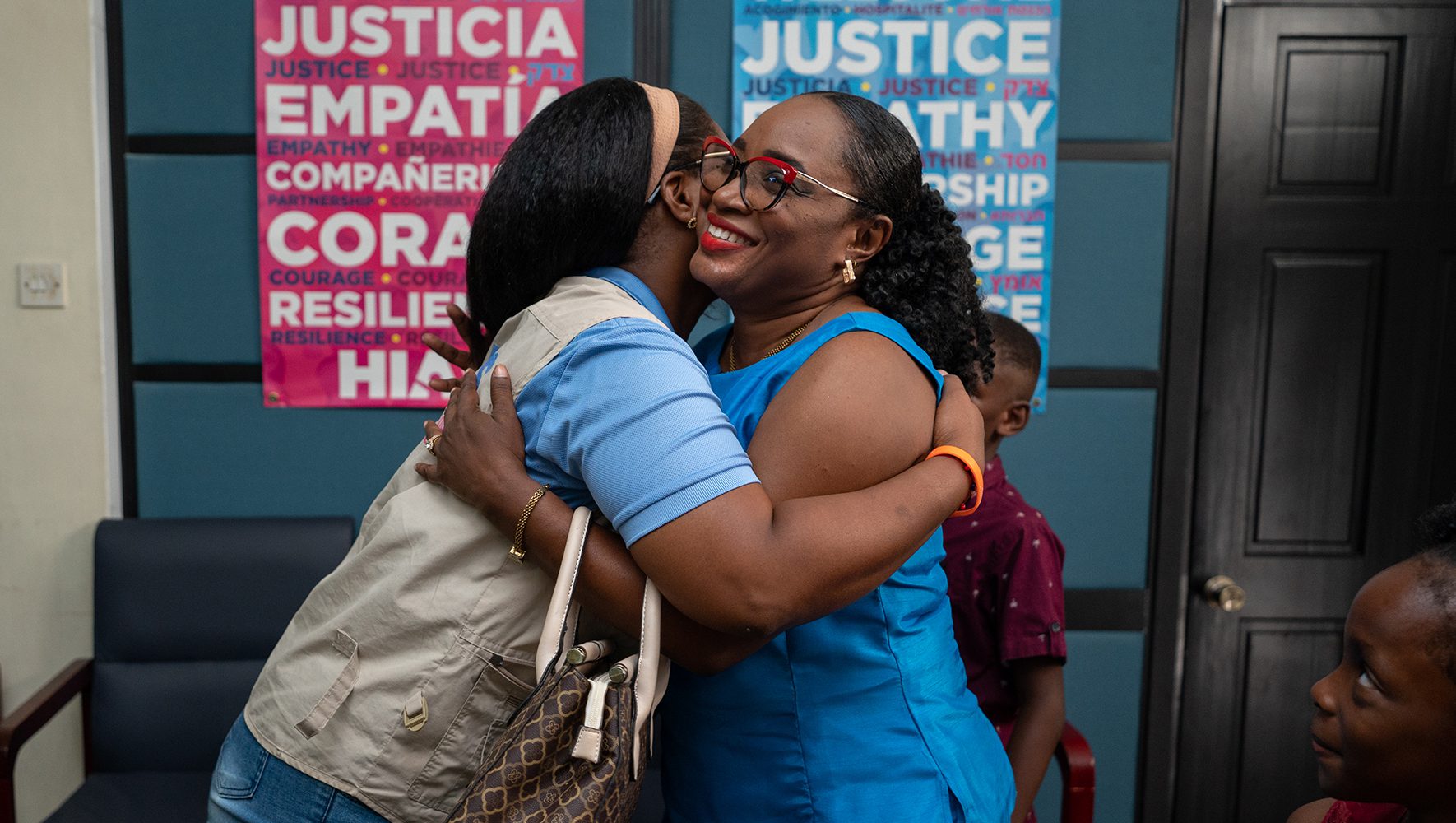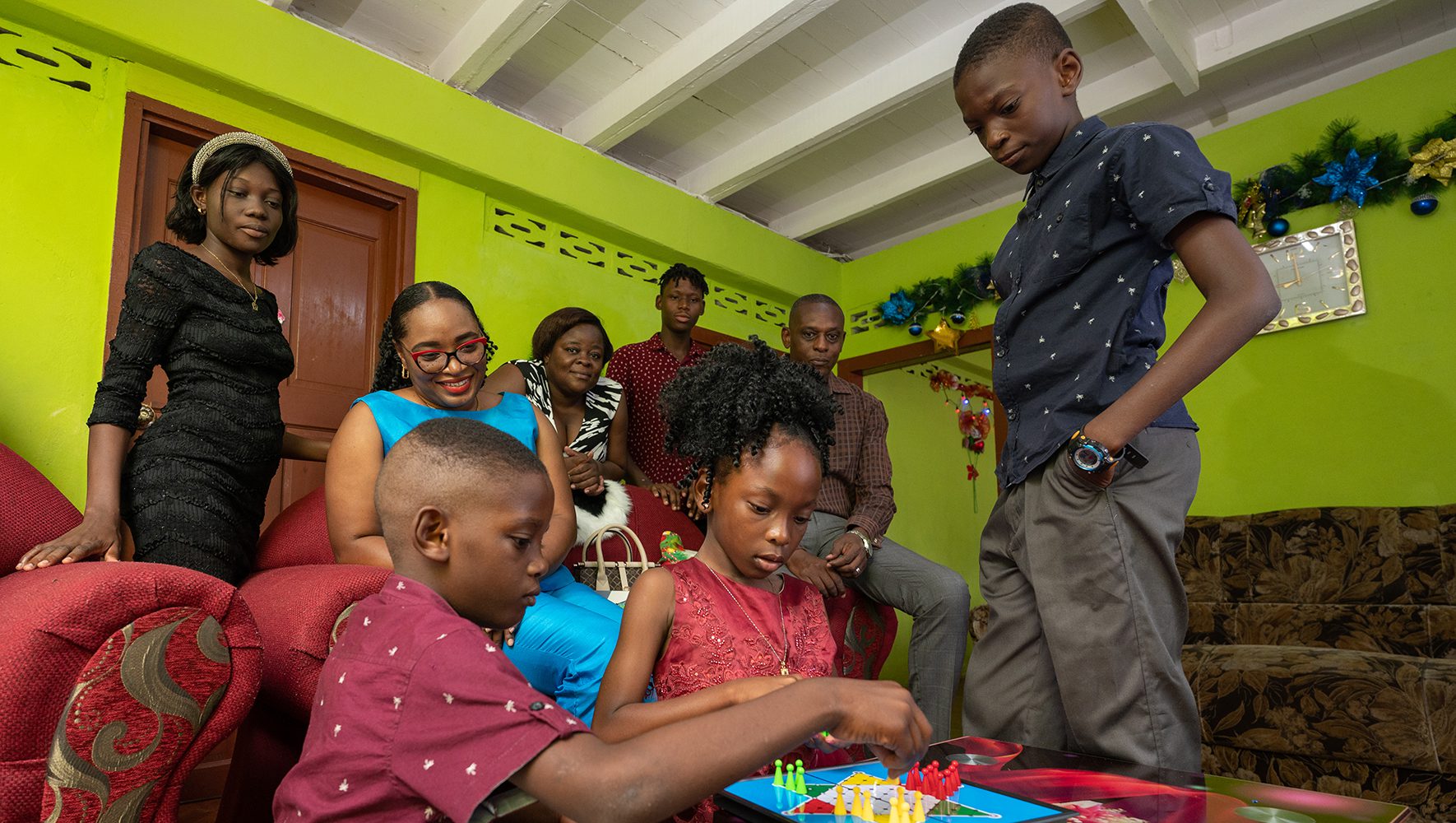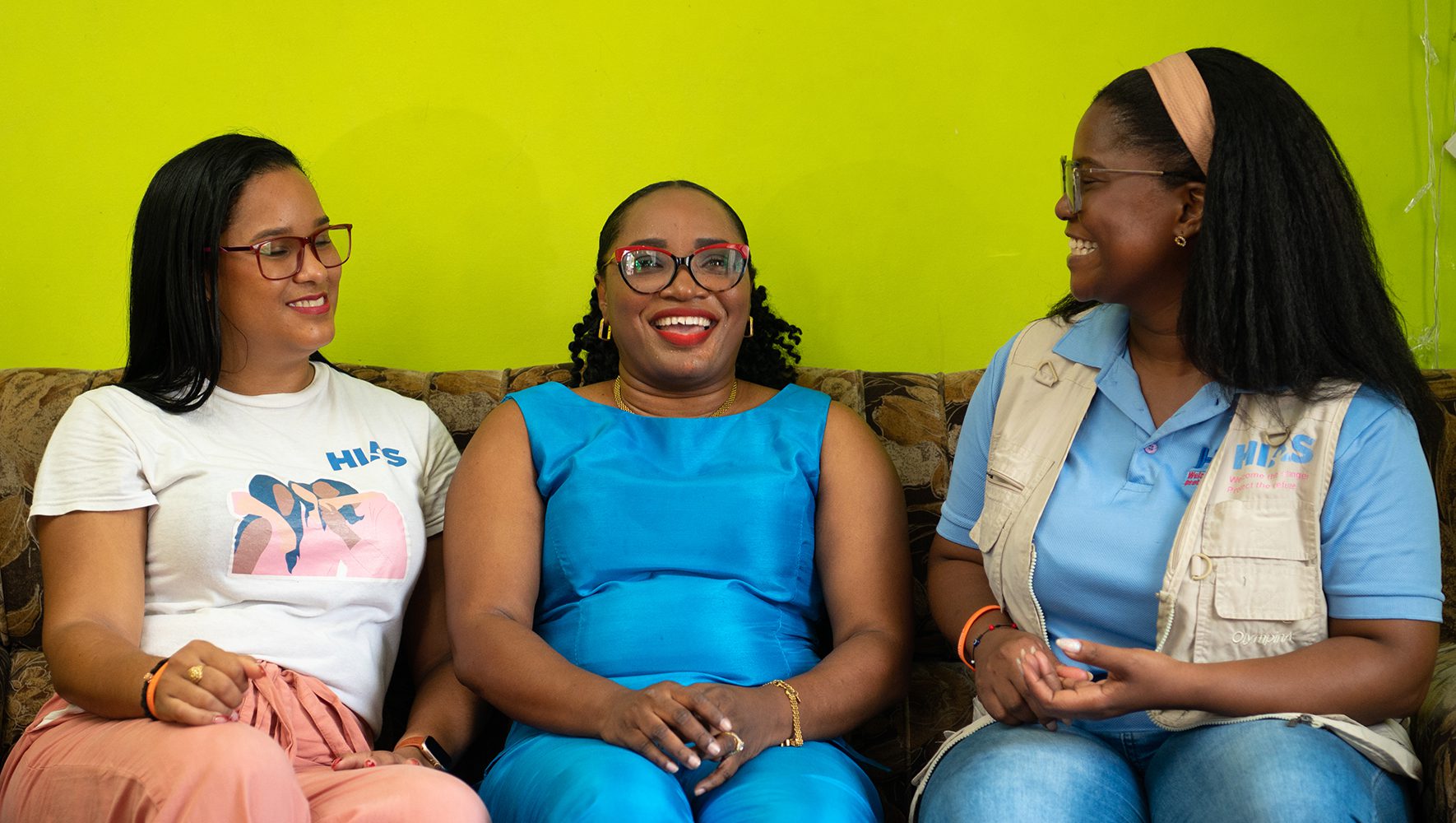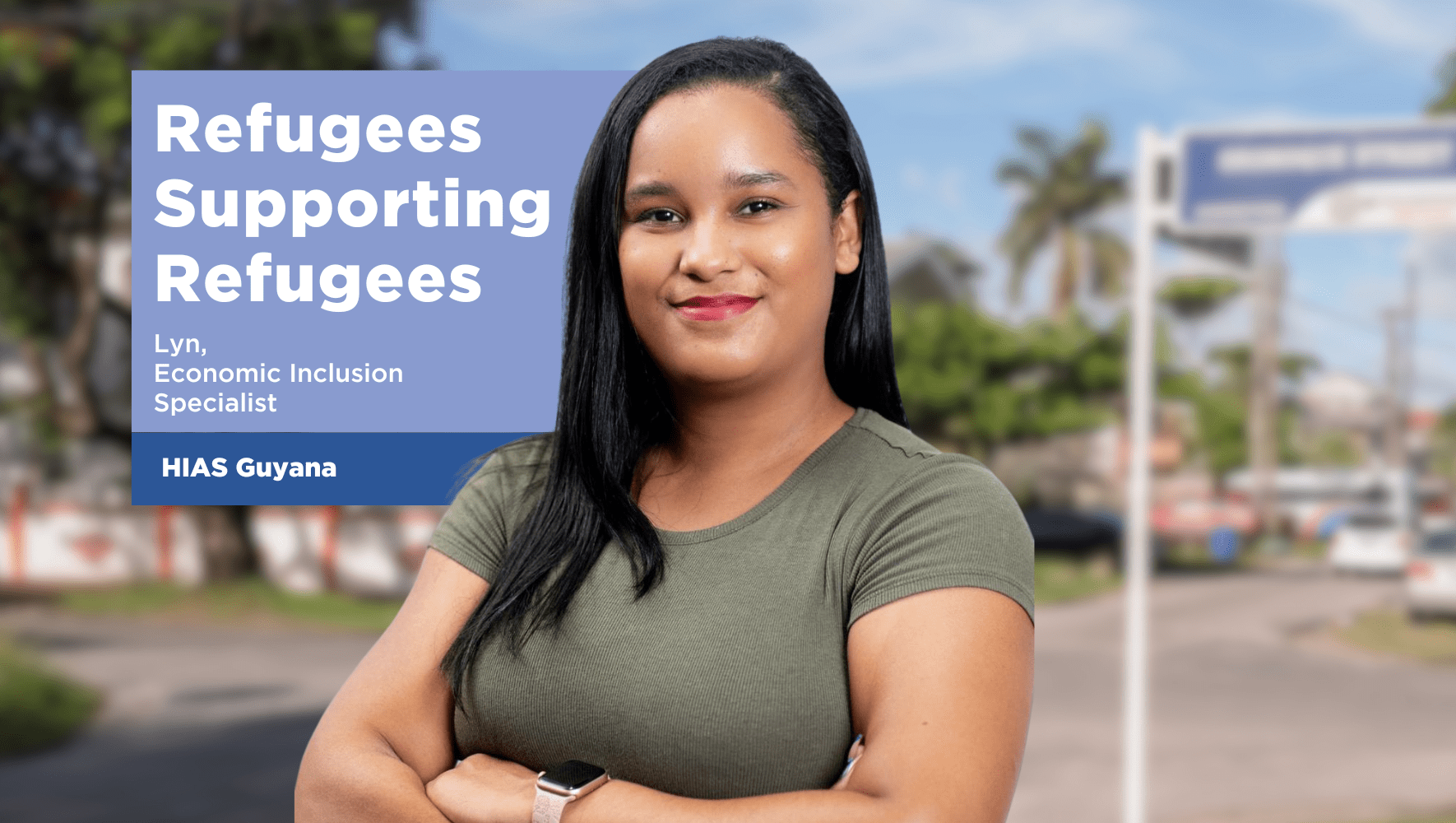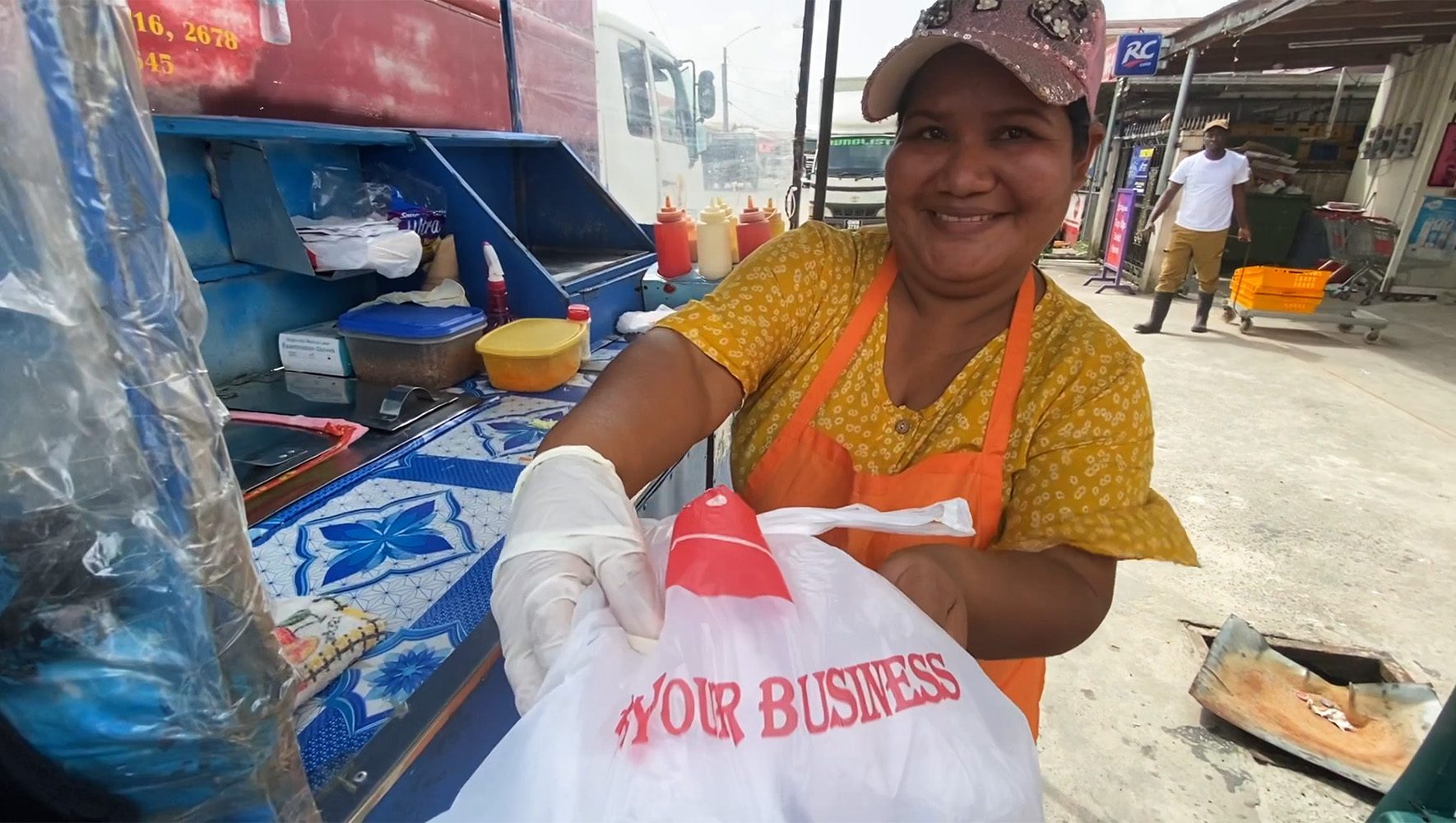When Esther Denis* closes her eyes in Guyana and thinks of home, she remembers the vibrant flavors of Haitian cuisine. One of her favorite things to cook is soup joumou, a comforting pumpkin broth that transports her back to her city, Port-au-Prince. Another thing that she misses is fritay — fried root vegetables and meat seasoned with parsley, scallions, bell peppers, garlic, cloves, and thyme.
“Haitian food is really delicious, but in Guyana, there isn’t anywhere you can go to try these dishes,” Denis said. “That’s why I want to open my own restaurant here in Georgetown.”
A profound political, social, and economic crisis has impacted the local population in Haiti for decades. In recent years, an increase in gang violence, in which thousands of civilians have become caught up, has forced many to flee in search of safety abroad.
One of them was Denis. Three years ago, after receiving death threats, she fled her homeland with her children and her husband. Starting over in Guyana was far from easy.
“In Haiti, I was working. We had a family business and my kids had access to everything they needed,” Denis said. “But arriving in Guyana was hard. We had to start from nothing.”
Denis and her family discovered HIAS Guyana through a referral made by a partner organization shortly after arriving. They were immediately attended to by protection staff who managed their case and worked with them to understand how HIAS could best support them based on their current needs and future goals.
Related News
A Refugee Explores Her Culinary Passion in Costa Rica
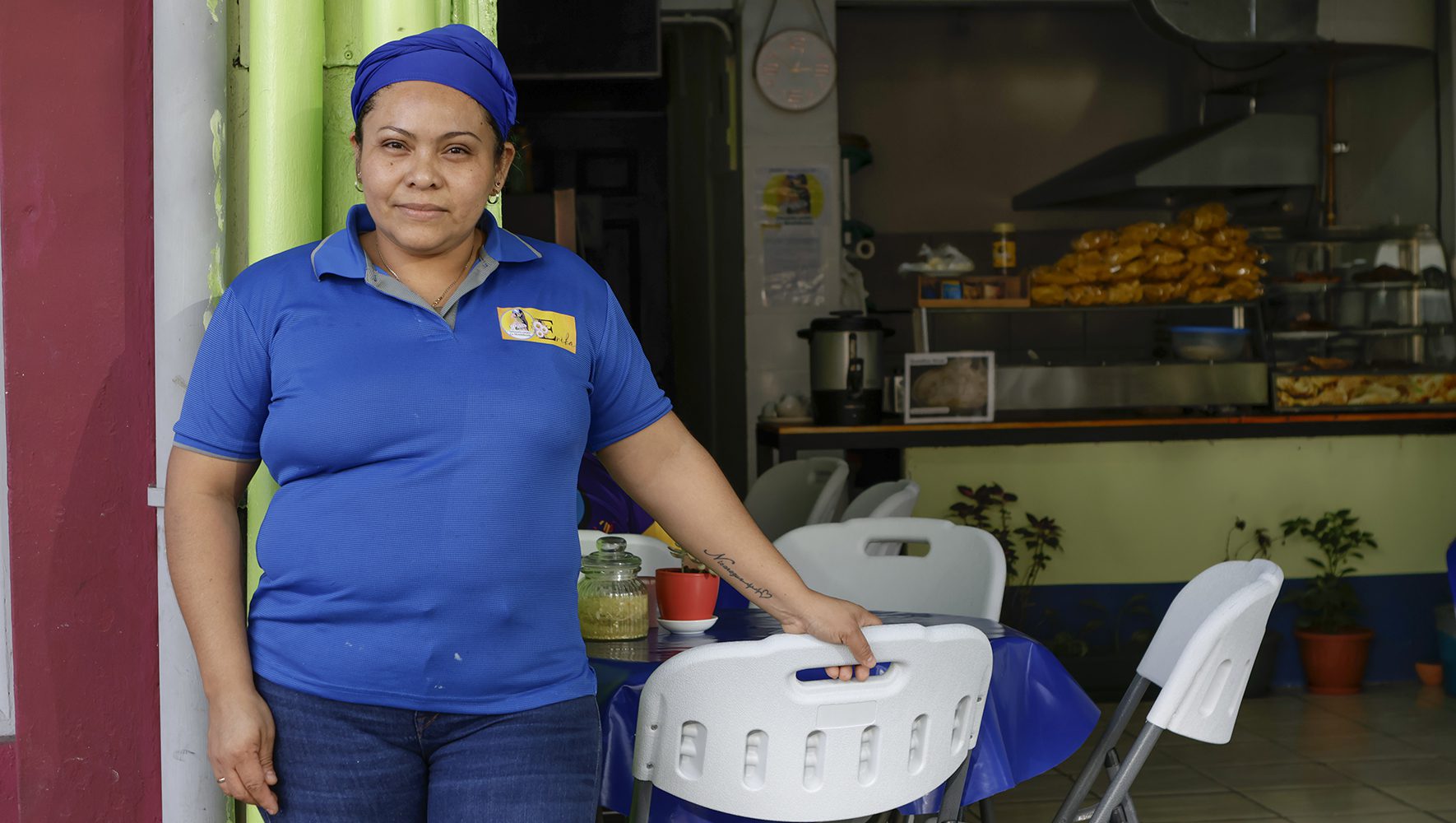
From Case Management to Specialized Services
The protection team at HIAS Guyana works with refugees and migrants to improve their understanding of their legal rights and their access to health and education services. The team also refers people in need of more specialized services in gender-based violence response, mental health support, and economic inclusion, to other areas of HIAS.
“We empower refugees and migrants so that they can become independent and learn to do things for themselves rather than to depend on us,” said Roxana Chichester, a protection officer for HIAS Guyana.
Denis and her family received case management support from HIAS. She also participated in the economic inclusion program, which offers refugees, migrants, and members of the local Guyanese community opportunities to learn new skills.
“As I want to open my own restaurant in the future, the customer service course I completed was really helpful. I completed a mixology course too so that now when I cook food for customers I can also make them drinks,” Denis said.
“As I want to open my own restaurant in the future, the customer service course I completed was really helpful."
Esther Denis*, HIAS participant.
Empowering Refugees and Migrants to Become Autonomous
The benefits of HIAS Guyana’s support go beyond learning new skills. A welcoming environment had a positive psychological impact on Denis and her family.
“When we arrived in Guyana, I felt really sad and alone, we didn’t know anyone here that could help us,” she said. “But now, thanks to HIAS, I’m hopeful again and feel like I can achieve my dreams. HIAS was the first place that made me feel welcomed here and now I know that tomorrow will be better than the day before.”
The assistance provided by HIAS Guyana is grounded in the values of empathy — but also empowerment. A fundamental component of interactions with refugees and migrants is ensuring that they understand that they are autonomous and that they can express their own needs and hopes for the future.
“At HIAS Guyana, we allow refugees and migrants to make choices. We ask people what they’d like to do, and what they’d like to achieve, and then we work with them to understand how we can support them to make their goals a reality,” said Lyn Morales, livelihoods officer for HIAS Guyana.
“People then start to realize that they don’t just have to take what they’re given by organizations. They can express what they want and that truly matters”.
In the case of Denis, that meant recognizing her dream of opening a restaurant.
“Cooking is what I love to do the most,” she said. “For my birthday, I cooked for some friends and now everyone keeps asking me when the restaurant will be open.”
*Names have been changed to protect the identity of program participants.


